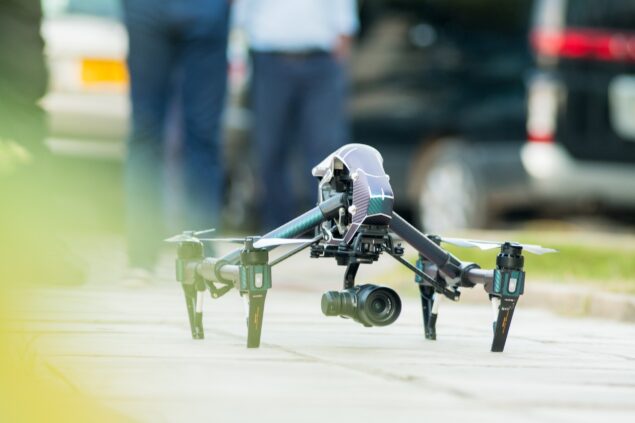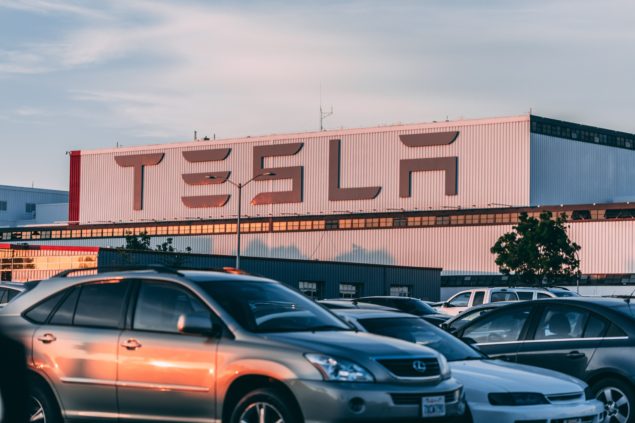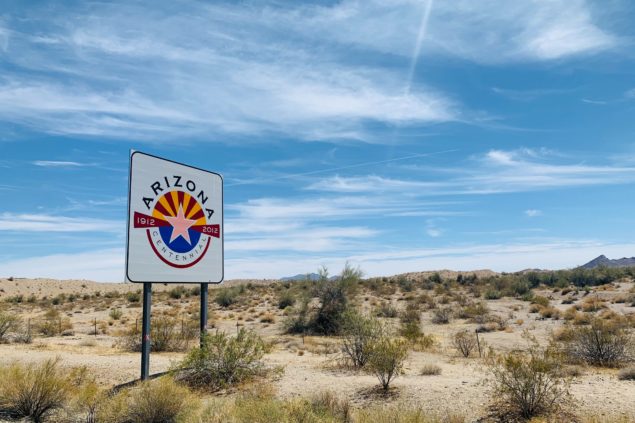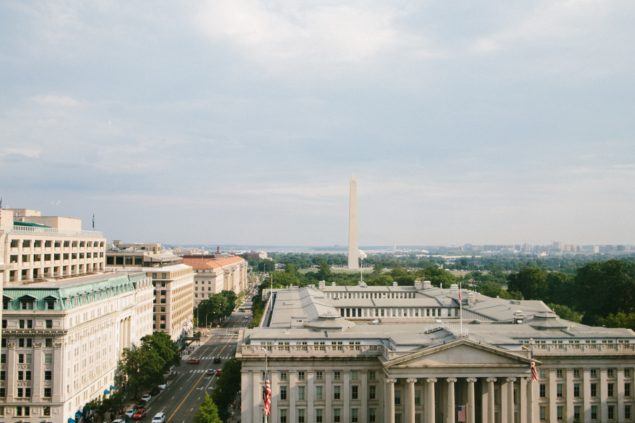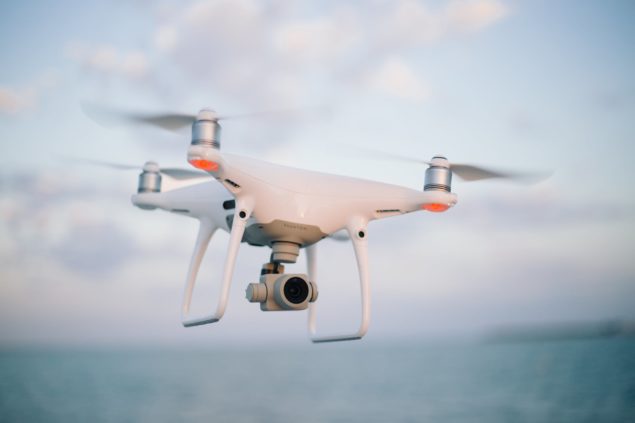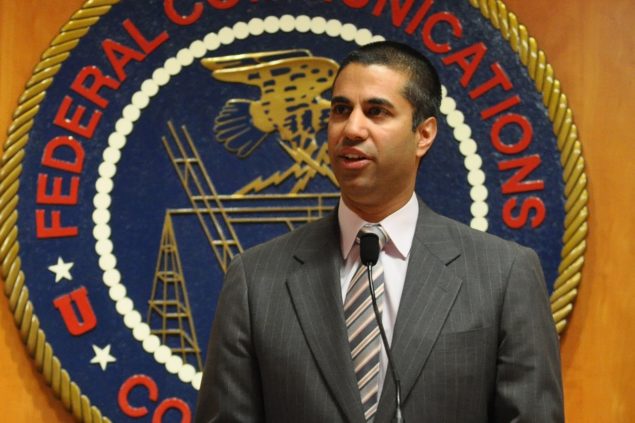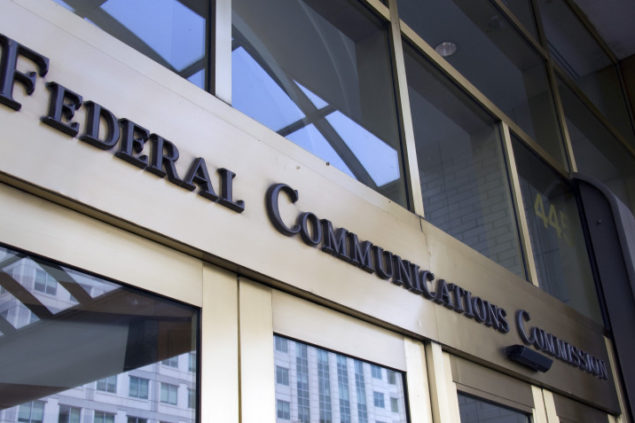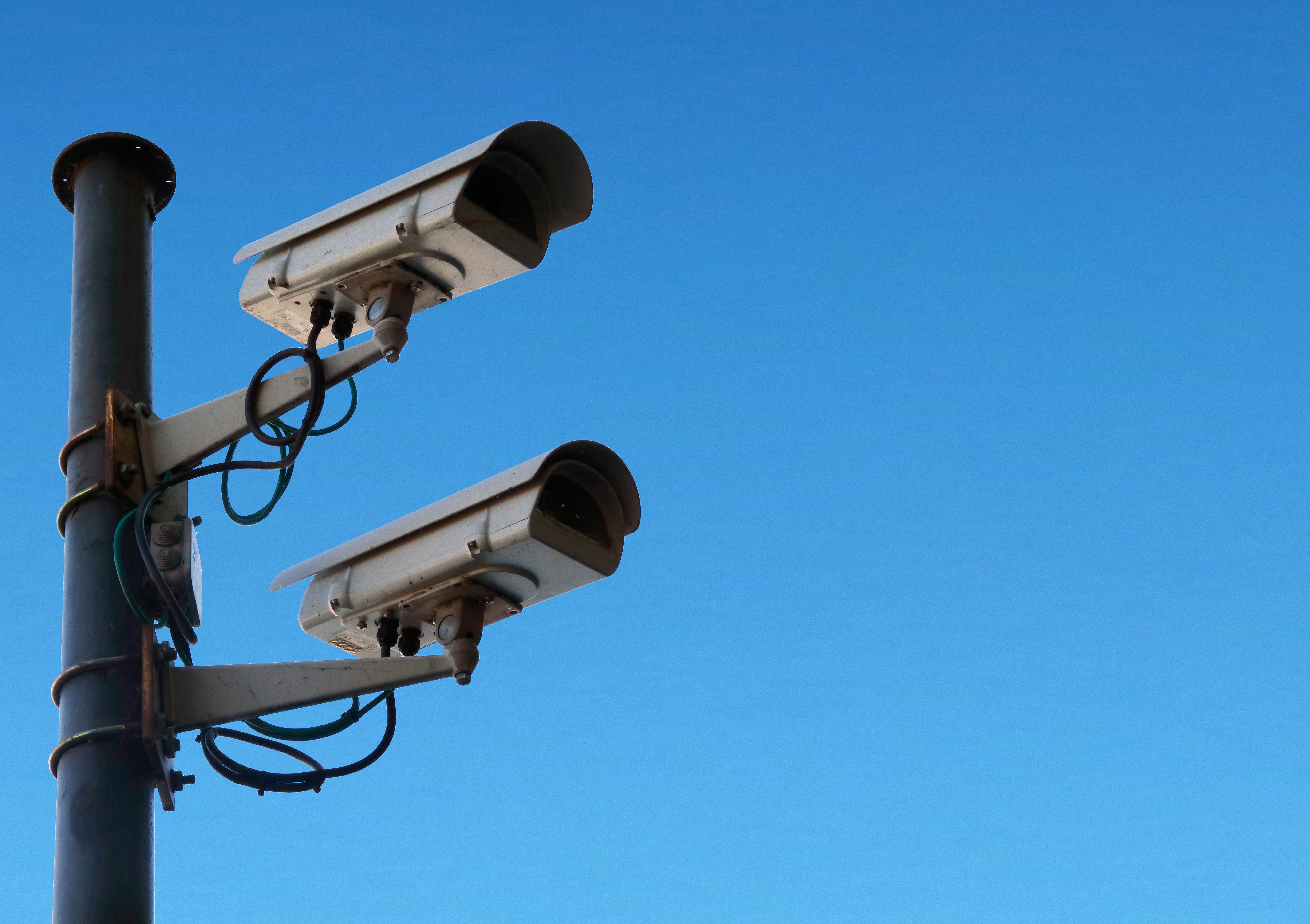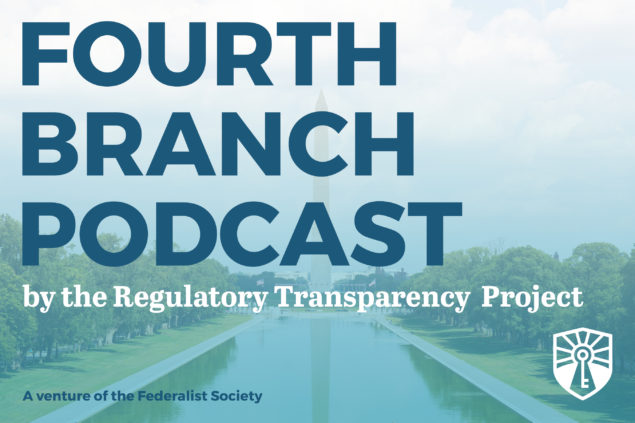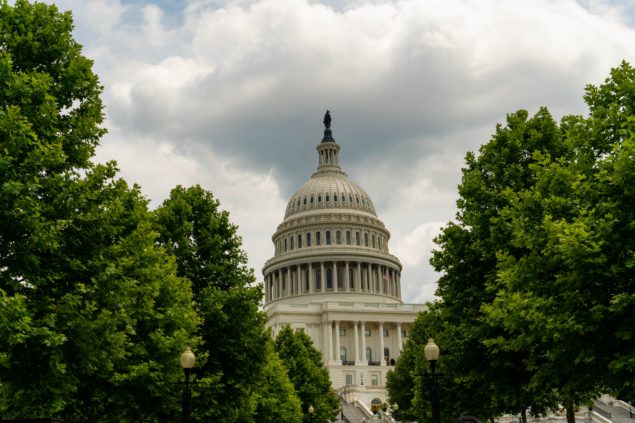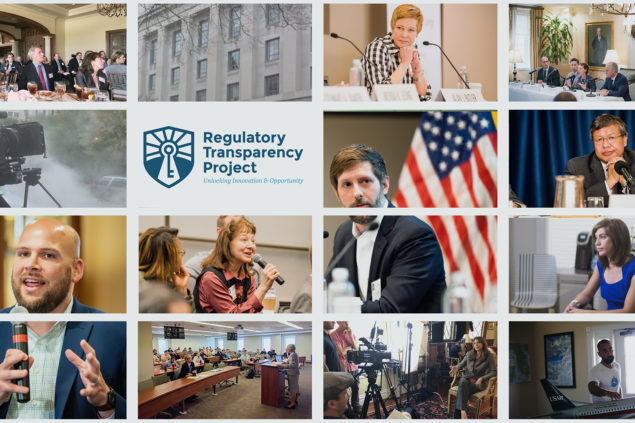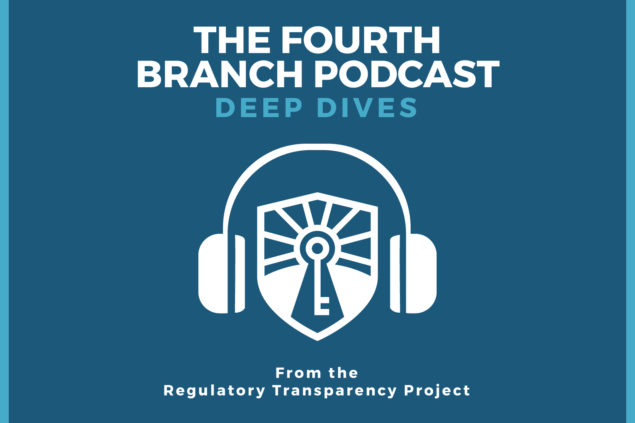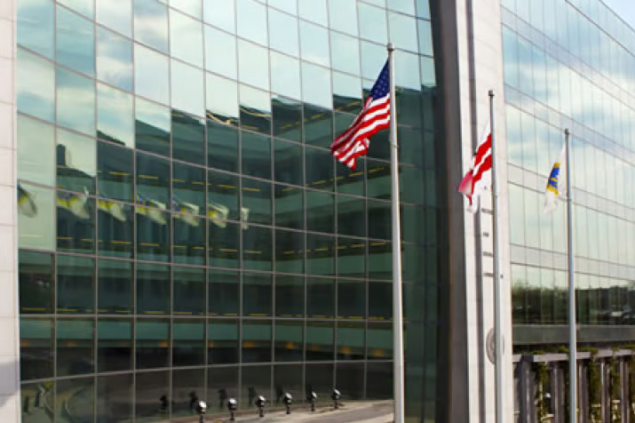Emerging Technology
Topics
Emerging technologies, like artificial intelligence, autonomous vehicles, and 5G internet have the potential to improve the standard of living for all of humanity but they also bring unique challenges and risks. How can regulatory oversight appropriately interact with pioneering technologies? Can regulation keep up but avoid stifling progress?
The Coming Onslaught of “Algorithmic Fairness” Regulations
The authors of this paper examine the growth of “algorithmic fairness” regulations at the federal, state, and international level, and discuss ramifications for administrative state regulation and innovation in markets.
Read this paperDeepfake Laws Risk Creating More Problems Than They Solve
Matthew Feeney explains what “Deepfake” technology is, assesses existing and proposed legislation to address the technology, and argues that any such legislation must be narrowly tailored to avoid unintended consequences.
Read this paperExplainer Episode 63 – Super Elections Year
The 2024 super election year has captured the world’s attention, with the US elections playing a central role in shaping…
Listen to this podcastTech Roundup Episode 22 – Training Artificial Intelligence & Copyright Law
Moderated by Brent Skorup, experts Timothy B. Lee, Professor Pamela Samuelson, and Kristian Stout discuss the emerging legal issues involving…
Listen to this podcastMinor Matters in Cyberspace: Examining Internet Age-Verification Regulations
As children’s lives become increasingly digital, how can we protect their safety online while weighing potential trade-offs like privacy interests and free speech?
Listen to this podcastExamining the SEC’s Approach Towards Crypto
Join us for an in-depth exploration into the SEC’s recent lawsuit against Coinbase – a case that will no doubt…
Listen to this podcastTech Roundup Episode 21 – The CHIPS Act, Immigration, and the Innovation Economy
In this Tech Roundup episode, Adam Thierer and Caleb Watney discuss what it takes to attract the world’s most brilliant minds and how the United States could maintain its competitive edge in the global race for talent.
Listen to this podcastTech Roundup Episode 20 – Drone Surveillance and the Fourth Amendment
In this Tech Roundup episode, we delve into the rapid adoption of drone technology by law enforcement entities and the legal and policy implications of this trend.
Listen to this podcastTech Roundup Episode 19 – Should TikTok Be Banned? A Conversation on Free Speech, National Security, State Actors, and State Actions
Following concerns about the information collected by and influence of the immensely popular Chinese-owned social media app TikTok, debates have…
Listen to this podcastTech Roundup Episode 18 – The Future of AI Regulation: Examining Risks and Rewards
In this Tech Roundup episode, we delve into the discussions raised by the U.S. Senate Judiciary Committee’s recent hearing on AI regulation.
Listen to this podcastDeep Dive Episode 265 – A Discussion on Central Bank Digital Currencies and the Future of Financial Privacy
Experts explore central bank digital currencies (CBDCs) and the ongoing debates over financial privacy, especially in relation to use of cryptocurrencies and other software privacy tools.
Listen to this podcastDeep Dive Episode 259 – AI & Antidiscrimination: AI Entering the Arena of Labor & Employment Law [Panel Discussion]
AI is increasingly used both in the public and private sectors for facial recognition, dataset analysis, risk and performance predictions, and much more, though how companies use it and the actual input it has can be unclear. At an in-person luncheon, an expert panel discussed the tensions surrounding the issues of AI and employment law.
Listen to this podcastDeep Dive Episode 258 – AI & Antidiscrimination: AI Entering the Arena of Labor & Employment Law [Keynote Address]
At an in-person luncheon, EEOC Commissioner Keith Sonderling delivered a keynote address on issues concerning AI’s entrance into the Labor and Employment space.
Listen to this podcastDeep Dive Episode 256 – Section 230 Goes to Court: Gonzalez v. Google and the Future of the Electronic Town Square
A panel of experts discusses what Section 230 permits and doesn’t permit—a question now before a number of courts, including the U.S. Supreme Court in Gonzalez v. Google.
Listen to this podcastExplainer Episode 44 – The Implications of AI Innovation and Regulation
Technology and data privacy experts discuss the evolving landscape of artificial intelligence, machine learning, and what these new technologies mean for existing and future policy and technology innovation.
Listen to this podcastExplainer Episode 36 – Restrictions on Direct Car Sales
Adam Thierer interviews Professor Daniel Crane regarding state restrictions on direct car sales and their implications for automobile markets.
Listen to this podcastTech Roundup Episode 17 – Governor Doug Ducey on Tech Policy and Innovation
Governor Ducey joined Brent Skorup and Adam Thierer to discuss initiatives aimed at boosting innovation Arizona has launched during his time in office.
Listen to this podcastTech Roundup Episode 16 – The Catawba Digital Economic Zone
Catawba Digital Economic Zone CEO Joseph McKinney joined tech policy expert Ryan Hagemann to discuss the Zone and its regulatory framework.
Listen to this podcastTech Roundup Episode 15 – Rail Automation and Forced Access
Experts Ian Adams and Ike Brannon join the podcast to break down recent proposals regarding forced access to railroads.
Listen to this podcastDeep Dive Episode 211 – Section 230, Common Law, and Free Speech
Kristian Stout and Brent Skorup joined Adam Thierer to debate how lawmakers and courts should approach Section 230 issues, political speech, and free speech online.
Listen to this podcastTech Roundup Episode 14 – Telematics in Cars and the Regulation of Auto Insurance
Ian Adams joined the podcast to break down the policy aspects of a recent Twitter spat between Elon Musk and California Insurance Commissioner Ricardo Lara.
Listen to this podcastTech Roundup Episode 13 – Autonomous Vehicles: Where Are We Now?
Experts Marc Scribner and Adam Thierer join us to provide an update on autonomous vehicle policy.
Listen to this podcastDeep Dive Episode 198 – Eyes to The Sky: Privacy, Property, Innovation, and Commerce in The Age Of The Drone
The editor and two of the co-authors of a new book joined us for a panel discussion of key legal and policy issues in “The Age of the Drone.”
Listen to this podcastDeep Dive Episode 195 – President Biden’s Executive Order on Foreign-Controlled Apps
An expert panel breaks down Biden’s executive order on foreign-controlled apps and its implications for relations between the United States and its foreign adversaries.
Listen to this podcastDeep Dive Episode 174 – Legal Issues for Commercial Drones: Privacy, Property Rights, and Federalism
Experts debate the issues of privacy, property rights, and federalism that have been raised the proliferation of commercial drones.
Listen to this podcastDeep Dive Episode 168 – Deepfakes: What, If Anything, Should Policymakers Do?
Can lawmakers craft legislation that limits the worst uses of Deepfakes without hampering the creation of valuable and creative Deepfake media?
Listen to this podcastDeep Dive Episode 163 – Shapers of Cyber Speech: Silicon Valley and American Discourse
Experts debate the pros and cons of regulatory proposals aimed at curbing social media content moderation.
Listen to this podcastDeep Dive Episode 154 – Tech Policy Under the Biden Administration and 117th Congress
How might the approach to regulation of the new presidential administration and Congress impact innovation and the tech industry?
Listen to this podcastDeep Dive Episode 153 – Reboot Conversations: The Future of Drone Policy
An expert panel discusses the future of drone policy in a Lincoln Network Reboot Conversation co-sponsored by the Regulatory Transparency Project.
Listen to this podcastExplainer Episode 21 – How is Insurance Regulated?
Ian Adams discusses how insurance is regulated in the United States and explains how emerging technologies are poised to disrupt the industry.
Listen to this podcastTech Roundup Episode 12 – Airspace and Drone Regulations
Brent Skorup discusses the current state of drone technology and the history of airspace and drone regulations in the United States.
Listen to this podcastDeep Dive Episode 149 – A Conversation with FCC Chairman Ajit Pai
On November 30, FCC Chairman Ajit Pai joined the Federalist Society’s Columbia Student Chapter for a wide-ranging discussion on net neutrality, Section 230, and more.
Listen to this podcastExplainer Episode 18 – Driverless Cars: Balancing Safety and Innovation
Ian Adams lays out the current state of driverless car technology and breaks down the decisions federal and state policymakers are facing when it comes to regulating it.
Listen to this podcastExplainer Episode 17 – A Big Week for Section 230
Jennifer Huddleston and Ashkhen Kazaryan break down the recent news related to Section 230 of the Communications Decency Act.
Listen to this podcastExplainer Episode 16 – An Update on Antitrust and Big Tech
Neil Chilson breaks down the recent developments with antitrust and big tech and discusses how they fit into the broader picture of antitrust law in the United States.
Listen to this podcastTech Roundup Episode 11 – TikTok’s Running Clock
How might the standoff over TikTok’s U.S. operations play out? Does the app pose a significant enough national security threat to warrant the forced sale? And how does this situation fit into the broader picture of U.S.-China relations?
Listen to this podcastDeep Dive Episode 131 – Free Speech in the Digital Era: Section 230 and the FCC
In this live podcast, panelists discuss the background of Section 230 and reflect on whether it continues to encourage innovation and free speech online, or if changes are needed.
Listen to this podcastTech Roundup Episode 10 – Trump’s Executive Order on Online Censorship
What is the legislative and legal background of the recent Executive Order on Preventing Online Censorship, how will it affect Section 230 of the Communications Decency Act, and what may be the unforeseen consequences of this move? These and other questions are addressed in this episode.
Listen to this podcastTech Roundup Episode 9 – COVID-19 and the Internet: A Conversation with Ajit Pai
In this episode, Ajit Pai joins Adam Theirer and Brent Skorup to discuss the principles driving the Federal Communications Commission in recent years, the “Keep Americans Connected” pledge, and how things have changed for the FCC in the midst of the COVID-19 pandemic.
Listen to this podcastTech Roundup Episode 8 – The Future of Facial Recognition
In this episode, Matthew Feeney hosts a discussion with Ashkhen Kazaryan and Caleb Watney on the approach regulators might take to the brave new world of facial recognition technology.
Listen to this podcastTech Roundup Episode 7 – Driverless Cars and Artificial Intelligence
In this episode, Adam Thierer and Caleb Watney discuss the emerging questions surrounding the progress of driverless car technology and its regulation.
Listen to this podcastTech Roundup Episode 6 – Constitutional Concerns about State Privacy Regulation
Do recent state privacy rules, like California’s CCPA, impinge on free speech, violate the dormant commerce clause, or are they preempted by other federal laws? Ian Adams and Jennifer Huddleston Discuss.
Listen to this podcastTech Roundup Episode 5 – Section 230
In this episode, experts discuss Section 230 of the Communications Decency Act, which protects platforms from liability for the content produced by users. Some legislators have recently floated the idea of enforcing ‘platform neutrality’ in a way that, according to critics, threatens the sort of free speech Section 230 is meant to protect.
Listen to this podcastDeep Dive Episode 81 – Vertical Integration in Broadcasting: A Cause for Concern?
What can the United States learn from Canada, a broadcasting market with higher levels of vertical integration and cross-media ownership? Brad Danks and William Rinehart discuss in a conversation moderated by Paul Beaudry.
Listen to this podcastTech Roundup Episode 4 – The Future of Drone Policy: A Discussion with Sen. Mike Lee
In this episode, Adam Thierer and Brent Skorup speak with Senator Mike Lee on the current state of drone regulation. The senator speaks to his proposal for a cooperative, federal solution to regulatory holdup in drone technology innovation.
Listen to this podcastTech Roundup Episode 3 – The Download on California’s New Privacy Proposal
This podcast features a fascinating back-and-forth on the implications of new amendments to California’s privacy law, CCPA (California Consumer Privacy Act).
Listen to this podcastTech Roundup Episode 2 – The Techlash: Big Tech and Antitrust
50 attorneys general have launched an investigation into Google for violations of antitrust law. Are they addressing real consumer harms? Is antitrust law the proper tool to address them? Adam Thierer, Geoffrey Manne, and Hal Singer debate.
Listen to this podcastTech Roundup Episode 1 – The Brave New World of Deep Fakes
What are deep fakes, and what are the societal and political implications of their emergence? What challenges do they present to regulators? These and other questions are explored in this episode.
Listen to this podcastDeep Dive Episode 51 – Emerging Tech and Regulation
In this episode, leading thinkers from across the emerging tech space discuss the regulatory environment for everything from drones to autonomous vehicles.
Listen to this podcastDeep Dive Episode 39 – Pepperdine Law Review’s 2019 Symposium Opening Address: Qualcomm’s Donald J. Rosenberg
In this episode, Donald J. Rosenberg of Qualcomm speaks on patent law and the dangers of regulatory capture in the emerging tech sector.
Listen to this podcastDeep Dive Episode 27 – Self-Driving Vehicles: Addressing the Challenges of Groundbreaking Innovation
Ryan Hagemann (Niskanen Center) and Jamie Boone (Consumer Technology Association) examine the regulatory barriers to the introduction of self-driving vehicles and propose a potential path forward.
Listen to this podcastDeep Dive Episode 12 – Can Government Regulation Keep Pace with Emerging Technology?
Greg McNeal (Pepperdine University) and Adam Thierer (Mercatus Center) discuss the law and policy frameworks impacting emerging technologies.
Listen to this podcastDeep Dive Episode 4 – “Uber of the Sky”: The Story of Flytenow
Alan Guichard (Flytenow) and Jonathan Riches (Goldwater Institute) discuss how Alan’s innovative ridesharing platform for small planes was outlawed by the FAA.
Listen to this podcastMinor Matters in Cyberspace: Examining Internet Age-Verification Regulations
As children’s lives become increasingly digital, how can we protect their safety online while weighing potential trade-offs like privacy interests and free speech?
Watch this videoExamining the SEC’s Approach Towards Crypto
Join us for an in-depth exploration into the SEC’s recent lawsuit against Coinbase – a case that will no doubt…
Watch this videoA Discussion on Central Bank Digital Currencies and the Future of Financial Privacy
In this webinar, experts explore central bank digital currencies (CBDCs) and the ongoing debates over financial privacy, especially in relation to use of cryptocurrencies and other software privacy tools.
Watch this videoAI & Antidiscrimination: AI Entering the Arena of Labor & Employment Law [Panel Discussion]
What statutes and regulations apply to AI, and do the existing legal and regulatory frameworks concerning anti-discrimination in labor and employment suffice to address the novel nature of AI?
Watch this videoAI & Antidiscrimination: AI Entering the Arena of Labor & Employment Law [Keynote Address]
At an in-person luncheon, EEOC Commissioner Keith Sonderling delivered a keynote address on issues concerning AI’s entrance into the Labor and Employment space.
Watch this videoAI & Antidiscrimination: AI Entering the Arena of Labor & Employment Law
What statutes and regulations apply to AI, and do the existing legal and regulatory frameworks concerning anti-discrimination in labor and employment suffice to address the novel nature of AI?
Watch this videoSection 230 Goes to Court: Gonzalez v. Google and the Future of the Electronic Town Square
A panel of experts discussed what Section 230 permits and doesn’t permit—a question now before a number of courts, including the U.S. Supreme Court in Gonzalez v. Google.
Watch this videoHow Do Regulations Affect Delivery Drones?
In this Fourth Branch video, Brent Skorup explains the limits of drone operation under the current regulatory framework.
Watch this videoEquity Crowdfunding: Risk, Reward, & Regulation
Experts break down equity crowdfunding and debate how regulators can most effectively foster innovation while preserving investor safety in the space.
Watch this videoSection 230, Common Law, and Free Speech
Kristian Stout and Brent Skorup joined Adam Thierer to debate how lawmakers and courts should approach Section 230 issues, political speech, and free speech online.
Watch this videoPresident Biden’s Executive Order on Foreign-Controlled Apps
An expert panel breaks down Biden’s executive order on foreign-controlled apps and its implications for relations between the United States and its foreign adversaries.
Watch this videoLeave a Decent Comment: Section 230 & the Fight for the Future of the Internet
In this short film, Former Representative Chris Cox, Senator Ted Cruz, Ashkhen Kazaryan, Rachel Bovard, and Jeff Kosseff explain the history and current issues around Section 230.
Watch this videoRegulating Big Tech: Lessons from the “Hall of Fallen Giants”
How can recent history inform current debates over “Big Tech” companies?
Watch this videoShapers of Cyber Speech – Silicon Valley and American Discourse
What are the realistic regulatory options for curbing Silicon Valley’s influence on the national discourse? What are the potential downsides of these options?
Watch this videoA Conversation with FCC Chairman Ajit Pai
On November 30, FCC Chairman Ajit Pai joined the Federalist Society’s Columbia Student Chapter for a wide-ranging discussion on net neutrality, Section 230, and more.
Watch this videoDriverless Cars: Technology & Regulation
In this Fourth Branch video, experts and advocates discuss the regulatory questions raised by the advancement of driverless car technology.
Watch this videoWashington or the States: Who Has the Authority to Regulate Commercial Drone Flights?
Commercial drone services are evolving rapidly but who regulates how and where they operate? The Federal Aviation Administration is authorized to oversee “navigable airspace.” On the other hand, drones fly low to the ground which would implicate property rights, which are governed by state laws. How might these regulatory issues be assessed and resolved, and how could they affect the future of drone technology and usage?
Brent Skorup is a Senior Research Fellow at the Mercatus Center at George Mason University.
Watch this videoRegulating Big Tech: Should Social Media Platforms Be Viewpoint Neutral? Should the Government Care?
On March 4, 2020, the Regulatory Transparency Project sponsored a symposium with the University of Pennsylvania Federalist Society student chapter. The second panel of the symposium was titled “Should Social Media Platforms Be Viewpoint Neutral? Should the Government Care?”
Watch this videoExecutive Agencies’ Effects on Innovation and Consumers under President Trump
On December 4, 2019, the Federalist Society’s Triangle Lawyers Chapter, Fox Rothschild LLP, and the Regulatory Transparency Project co-sponsored an event at the Sheraton Hotel in Durham, North Carolina. The event discussed “Executive Agencies’ Effects on Innovation and Consumers under President Trump”.
Watch this videoPepperdine Law Review’s 2019 Symposium: Emerging Technology and Regulation
Today’s regulatory landscape presents challenges for public and private entities. Private actors are often faced with conflicting, ambiguous, or altogether absent regulatory frameworks. Is it possible for them to overcome these challenges while delivering the creativity and innovation the marketplace demands? How can government regulators and legislators avoid stifling opportunity, function more efficiently, and enact and enforce sensible and effective regulatory schemes?
Pepperdine Law Review’s 2019 Symposium, in partnership with the Regulatory Transparency Project, explored these vital questions from both the academic and practical perspectives. The third panel of the symposium focused on the potential impact of regulatory policies on emerging technologies.
Watch this videoHere to Stay: The Modern World of Hospitality
Do home-sharing platforms like Airbnb need more regulation to protect consumers and the safety of local communities? How can the interests of private property owners, consumers, and small businesses be balanced? What might an optimal level of regulation look like, and who decides?
In this Fourth Branch video, Gwendolyn Smith (Grandview Bed & Breakfast), Matthew Feeney (Cato Institute), and Pete Clarke (Retired Commissioner, Orange County, FL) explore the legal and regulatory questions that have accompanied the rise of home-sharing platforms.
Watch this videoReboot 2018: Can We Still Be Optimistic About the Future of Work?
From robots to the gig economy, anxieties are rising about technology’s impact on labor and the future of work. While we may have to overcome significant disruptions and other challenges, are there still good reasons to be optimistic? Our expert panel will discuss the current political and policy landscape.
The Regulatory Transparency Project co-sponsored the Lincoln Network’s Reboot 2018 conference.
Watch this videoReboot 2018 Fireside Chat: Disruption and Civil Disobedience
We used to praise disruptors who flagrantly challenged outdated regulations. But the boundary-pushing of some companies has left a bad taste. Has this chilled the willingness of the next wave of startups and investors to take the same kinds of risks? Has this made policymakers more willing to intervene early? What’s the best legal framework to approach disruptive technologies?
Watch this videoRegulating Planesharing: A Conversation on Regulation and Innovation
In a world of drone delivery and self-driving cars, do innovation and regulation need to be at odds with one another? Secretary of Transportation Elaine Chao and a variety of other experts weigh in on this critical discussion.
Watch this videoEmerging Technology in Transportation
On Friday, May 18, 2018, the Regulatory Transparency Project and Capitol Hill Chapter of the Federalist Society co-sponsored a panel discussion on emerging technology legislation. Experts explored drone delivery, autonomous vehicles, flight sharing, and more.
Watch this videoHow the FAA Defines a Common Carrier
How has common carriage traditionally been defined? How has this definition changed over time? Christopher Koopman, Senior Research Fellow and Director of the Technology Policy Program, Mercatus Center, discusses these important questions.
Watch this videoCollaborative Acceleration of Regulation and Innovation
Gregory S. McNeal, Professor of Law and Public Policy, Pepperdine University, and Co-Founder, AirMap, acknowledges that “almost every industry has to have some D.C. touchpoint.” In this video, he discusses “collaborative acceleration” and what it means in practice for both innovators and government agencies.
Watch this videoRegulating Planesharing: Exploring Common Carriage and Expense Sharing
The legal fate of Flytenow, a ridesharing platform for small planes, was sealed by the FAA’s determination that it acted as a common carrier despite Flytenow’s claim that it was engaged in permissible expense sharing. What are common carriage and expense sharing? A variety of experts discuss the legal aspects of the Flytenow case.
Watch this videoRegulating Planesharing: Flytenow and the FAA
Flytenow, founded by Alan Guichard and Matt Voska, was a ridesharing platform for small planes. Hailed as the “Uber of the Sky,” Flytenow aimed to serve as an online bulletin board to connect pilots of small planes with those willing to offset the pilots’ costs. However, the FAA deemed the online nature of Flytenow to be impermissible and Flytenow was unable to take flight. Learn the story of Flytenow in this Fourth Branch video.
Watch this videoNew Legal Analysis: Regulatory Implications of Turning Internet Platforms Into Common Carriers
Neil Chilson
The content moderation policies of major internet platforms like Facebook and X (formerly Twitter) have faced escalating criticism in recent years. Many conservatives now argue that because these platforms exhibit political bias and routinely censor right-leaning political views and news stories, some sort of government regulation is required. Standing in the way, however, is the First Amendment.
Read this articleThe Problem with AI Licensing & an “FDA for Algorithms”
Neil Chilson and Adam Thierer
Last year, we released a study for the Federalist Society predicting “The Coming Onslaught of ‘Algorithmic Fairness’ Regulations.” That onslaught has now arrived. Interest in artificial intelligence (AI) and its regulation has exploded at all levels of government, and now some policymakers are floating the idea of licensing powerful AI systems and perhaps creating a new “FDA for algorithms,” complete with a pre-market approval regime for new AI applications. Other proposals are on the table, including transparency mandates requiring government-approved AI impact statements or audits, “nutrition labels” for algorithmic applications, expanded liability for AI developers, and perhaps even a new global regulatory body to oversee AI development.
Read this articleDevelopments on Drones, Air Rights, and Takings
Brent Skorup
With the rapid progress of drone technology, legal claims to low-altitude airspace raise novel questions about the application of property law and constitutional protections.
Read this articleCan Social Media Companies Censor Lawmakers’ Accounts?
Brent Skorup
“If courts progress down this path, social media companies may one day be severely limited in moderating lawmakers’ social media accounts.”
Read this articleThe Arrival of the Federal Computer Commission?
James Dunstan
“…two proposals, if adopted, would throw the door wide open to transforming the Federal Communications Commission into the Federal Computer Commission…”
Read this articleWhy Capitalists in Space Are Good for Americans’ Future
William Rinehart and Adam Thierer
“Discouraging private space exploration would be a step backwards and undo positive reforms that have made space more accessible and affordable.”
Read this articleThe Growing Legal Controversy About Drone Trespass
Brent Skorup
Can homeowners prevent drones from flying above their property? Is a drone that does so trespassing?
Read this articleJustice Thomas on Controlling the Tech Giants
Peter Wallison
How to control the tech giants has continued to raise concerns about both media bias and free speech. In a new concurring opinion, Justice Clarence Thomas has provided some important thoughts and distinctions on the topic that will likely stir some new thinking in the legal world.
Read this articleWhat the Biden Administration May Bring for Tech Policy
Jennifer Huddleston
“The Biden administration should carefully consider the significant tradeoffs regulation can have and embrace bipartisan opportunities to build on the United States’ innovation-friendly approach.”
Read this articleNew FAA Drone Rules: A Step in the Right Direction
Brent Skorup
The FAA’s new commercial drone regulations are cautious and incremental, but represent a major improvement by routinizing long-distance commercial drone operations.
Read this articleWhy the DOJ Has a Strong Case Against Google
Rachel Bovard
Governing the Internet: Rather than building a case which attempts to satisfy a broad variety of grievances, the DOJ has designed its complaint against Google with one goal in mind: to win.
Read this articleThe House Staff Antitrust Report Will Negatively Affect More Than the Tech Industry
Lawrence Spiwak
Governing the Internet: Every business—not just Big Tech—should be worried if Congress attempts to enact the report’s recommended legislative changes.
Read this articleSection 230 Legal Issues: The FCC’s Authority and the First Amendment
Randolph May
Governing the Internet: The FCC has the rulemaking authority to clarify the meaning of Section 230, and that narrowing Section 230 is not necessarily a First Amendment violation.
Read this articleThe DOJ’s Weak Case Against Google
Neil Chilson
Governing the Internet: Antitrust enforcement can ensure competitive markets that benefit consumers. But politicized antitrust benefits a few companies and politicians at the expense of everyone else.
Read this articleThe FCC Should Address Distortions of Section 230
Rachel Bovard
Governing the Internet: The current application of Section 230 has reversed its intended effect, prioritizing the speech rights of platforms over and above those of their users—and at a scale that distorts the information access, free thought, and market access for billions.
Read this articleBig Tech & The Whole First Amendment
Craig Parshall
Governing the Internet: Congress should create free-speech conditions for liability protections for market-dominant tech platforms whose trade is third-party content.
Read this articleFCC’s O’Rielly on First Amendment & Fairness Doctrine Dangers
Neil Chilson and Adam Thierer
Governing the Internet: Plenty of people claim to favor freedom of expression, but increasingly the First Amendment has more fair-weather friends than die-hard defenders.
Read this articleWelcome to the New “Tech Roundup Podcast”
Adam Thierer
Looking to stay on top of breaking policy developments surrounding the world of emerging technology? The new “Tech Roundup Podcast” has you covered.
Read this articleEmerging Tech and Regulation: What Will the Future Hold?
In March, the Pepperdine Law Review cohosted a symposium with the Regulatory Transparency Project on “Regulating Tech: Present Challenges and Possible Solutions”. The last panel of a very busy day was focused on emerging tech and government regulation, with leading thinkers from across several industries discussing the current environment for everything from drones to ridesharing.
Read this articleThe Flaws in the Latest Proposal to Break Up Big Tech
William Rinehart
Sen. Warren essentially calls for a return to the regulatory structure of “the Gilded Age…” But the era’s efforts to pull apart companies hardly make an exemplary record.
Read this articleQualcomm’s Donald Rosenberg on Regulation and Innovation
Donald J. Rosenberg delivered an address last month at the Pepperdine Law Review‘s Symposium, speaking on patent law and the dangers of regulatory capture in the emerging tech sector.
Read this articleThe Modern World of Home-Sharing
Christina Sandefur
Since our country’s founding, Americans have allowed guests to stay in their homes for short periods of time, often in exchange for doing chores or paying for dinner. Today, technology allows people to do this in ever more efficient ways—to allow guests to rent a room or a house for a week or a night at time.
Read this articleSEC Report: Cryptocurrencies as Securities?
Jerry Brito
The SEC recently issued an investigative report concluding that some crypto-tokens can be securities. What the SEC did not say is that all tokens are securities.
Read this article







